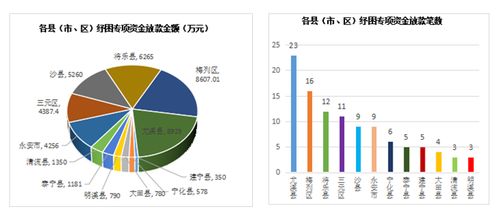Title: English Translation of "纾困专项基金"
Introduction:
纾困专项基金 is a Chinese term used to refer to special relief funds or financial aids. These funds are established by governments or organizations to provide assistance and support during difficult or challenging times. In English, it can be translated as "Special Relief Fund" or "Emergency Assistance Fund."
Explanation:
The concept of 纾困专项基金 encompasses the idea of alleviating financial burdens and providing relief to those who are facing financial difficulties. This can include individuals, families, or businesses who are struggling due to unforeseen circumstances such as natural disasters, economic downturns, or public health emergencies.
The establishment of a Special Relief Fund signifies the recognition of a specific situation that requires immediate attention and support. The fund aims to provide financial aid, resources, and services to those affected, facilitating their recovery and revitalization.
Usage and Application:
1. Governmental Relief Funds:
Governments often establish special relief funds to address various crises, such as natural disasters or economic recessions. These funds are used to provide financial support to affected individuals or businesses, offering assistance in rebuilding their lives or restoring their businesses.
2. Corporate and Nonprofit Relief Funds:
Corporate entities and nonprofit organizations also establish special relief funds to support individuals or communities in times of need. These funds can be used to provide financial aid, food, shelter, medical assistance, and other essential supplies.
3. Specific Industry Relief Funds:

Some industries, such as tourism, hospitality, or entertainment, may establish special relief funds during crises that disproportionately impact their sector. These funds aim to provide financial support and resources to businesses and workers within the industry, helping them sustain operations or find alternative employment.
4. International Aid:
In the context of international cooperation, countries may contribute to special relief funds established by other nations to assist in their recovery efforts. This collaboration ensures timely and effective assistance in times of global crises, promoting solidarity and support among countries.
Best Practices and Recommendations:
1. Clarity and Transparency:
Establishing clear guidelines and transparent processes for accessing the relief funds is essential. This ensures that the funds are distributed fairly and efficiently to those who need them the most.
2. Monitoring and Evaluation:
Implementing robust monitoring and evaluation mechanisms helps assess the effectiveness and impact of the relief funds. This enables continuous improvement and ensures that the funds are being utilized appropriately to address the identified needs.
3. Collaboration and Partnerships:
Collaborating with relevant stakeholders such as community organizations, NGOs, and local authorities enhances the effectiveness of the relief funds. This collaboration facilitates the identification of the most urgent needs and ensures a coordinated response.
4. Longterm Planning:
While special relief funds focus on immediate assistance, it is crucial to consider longterm planning for sustainable recovery and resilience building. This may include investing in infrastructure, education, or job creation initiatives to support the affected communities in the long run.
Conclusion:
Special Relief Funds, or 纾困专项基金, play a vital role in providing immediate financial aid and support to individuals, families, and businesses during challenging times. The establishment of such funds reflects a commitment to social welfare, solidarity, and recovery. By ensuring transparency, effective monitoring, collaboration, and longterm planning, these funds can help alleviate the hardships faced by communities and contribute to their resilience and revitalization.









